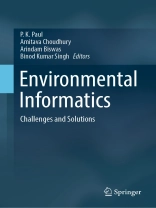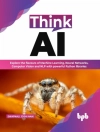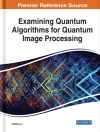This interdisciplinary book incorporates various aspects of environment, ecology, and natural disaster management including cognitive informatics and computing. It fosters research innovation and discovery on basic science and information technology for addressing various environmental problems, while providing the right solutions in environment, ecology, and disaster management. This book is a unique resource for researchers and practitioners of energy informatics in various scientific, technological, engineering, and social fields to disseminate original research on the application of digital technology and information management theory and practice to facilitate the global transition toward sustainable and resilient energy systems. Cognitive informatics is also the need of the hour and deals with cutting-edge and multidisciplinary research area that tackles the fundamental problems shared by modern informatics, computation, software engineering, AI, cybernetics, cognitive science, neuropsychology, medical science, systems science, philosophy, linguistics, economics, management science, and life sciences, which this book also presents.
विषयसूची
1. Environmental Informatics: Basics, Nature and Applications using Emerging Technologies with reference to Issues & Potentialities .- 2. Exploring the Role of ICCT Underlying Technologies in Environmental and Ecological Management .- 3. The practice of Green Computing for busininess .- 4. Green Information Centres and Allied Foundations: The Concerns of Environmental Information & Documentation Practice .- 5. A study on the social and economic impact of artificial intelligence-based environmental forecasts.
लेखक के बारे में
Dr. P K Paul is currently working as Executive Director, MCIS, is Assistant Professor, Dept. of Computer & Information Sciences, and also holds Information Scientist Position at Raiganj University, West Bengal India. His research interests are in the areas of emerging and interdisciplinary Information Science. Dr. Amitava Choudhury is currently working as Assistant Professor in the School of Computer Science, University of Petroleum & Energy Studies, Dehradun, India. His research interests are in the areas of computational geometry in the field of micromechanical modeling, pattern recognition, character recognition, and machine learning.
Dr. Arindam Biswas received his M. Tech. degree in Radio Physics and Electronics from University of Calcutta, India, in 2010 and Ph.D. from NIT Durgapur in 2013. He was Postdoctoral Researcher at Pusan National University, South Korea, with prestigious BK21PLUS Fellowship, Republic of Korea. His research interest is in carrier transport in low-dimensional system and electronic device, nonlinear optical communication, and THz semiconductor source.
Dr. Binod Kumar Singh is Associate Professor in the Department of Computer Science and Engineering at the National Institute of Technology, Jamshedpur. He completed his Ph.D. from Indian Institute of Technology Roorkee. His research interests lie in the field of image processing, network security, cloud computing, and distributed systems.












